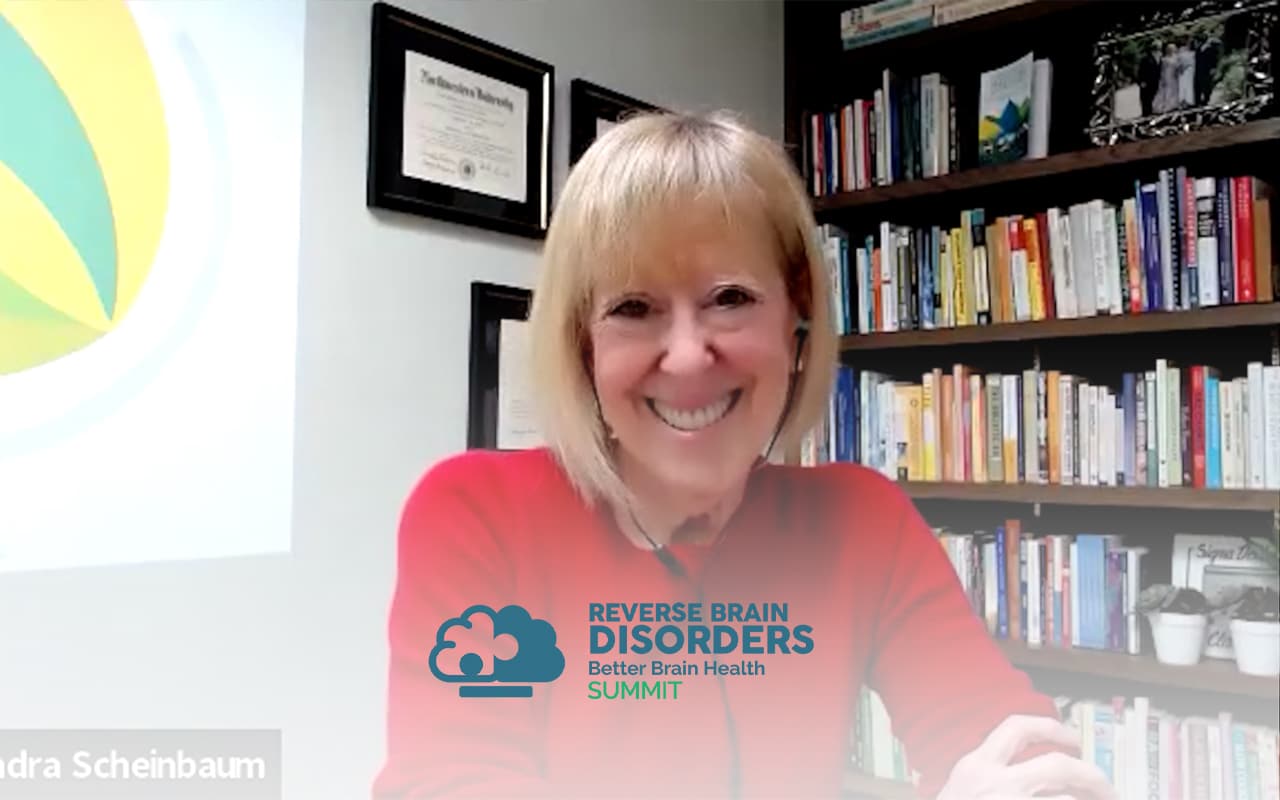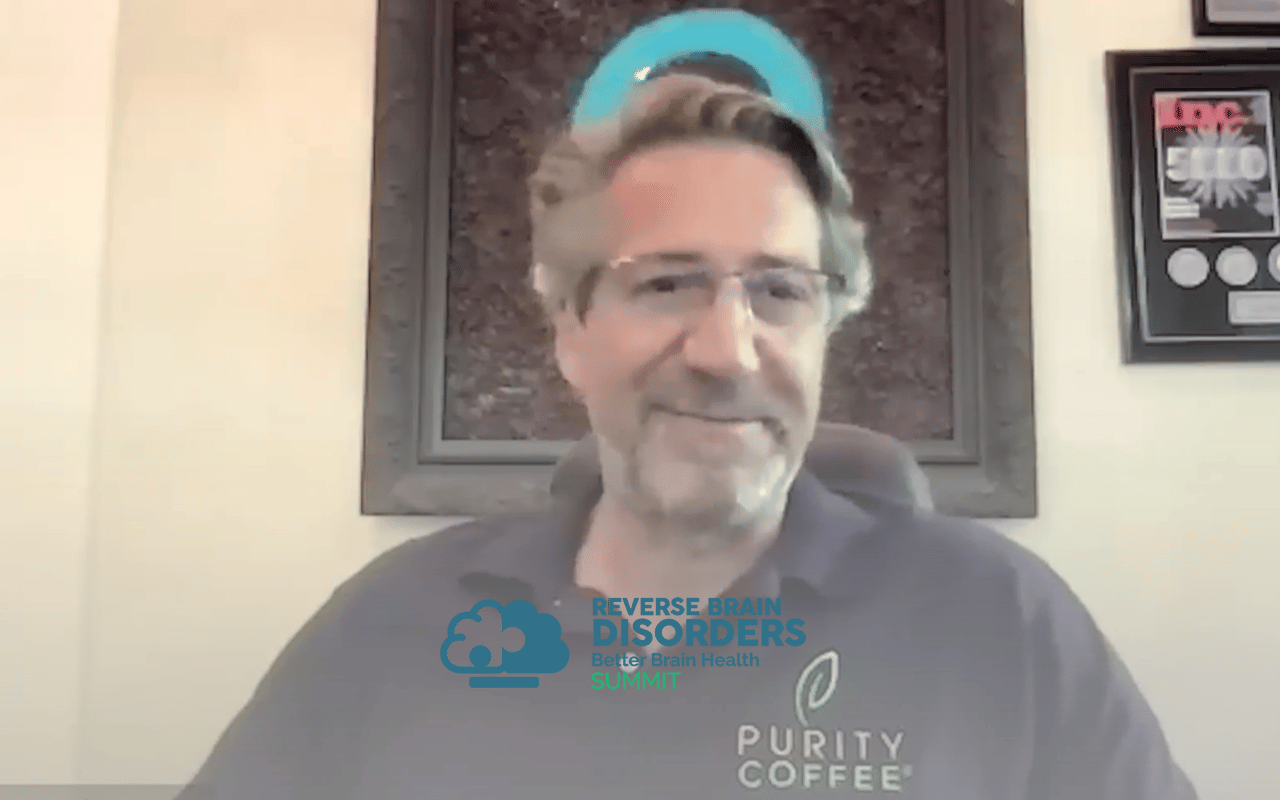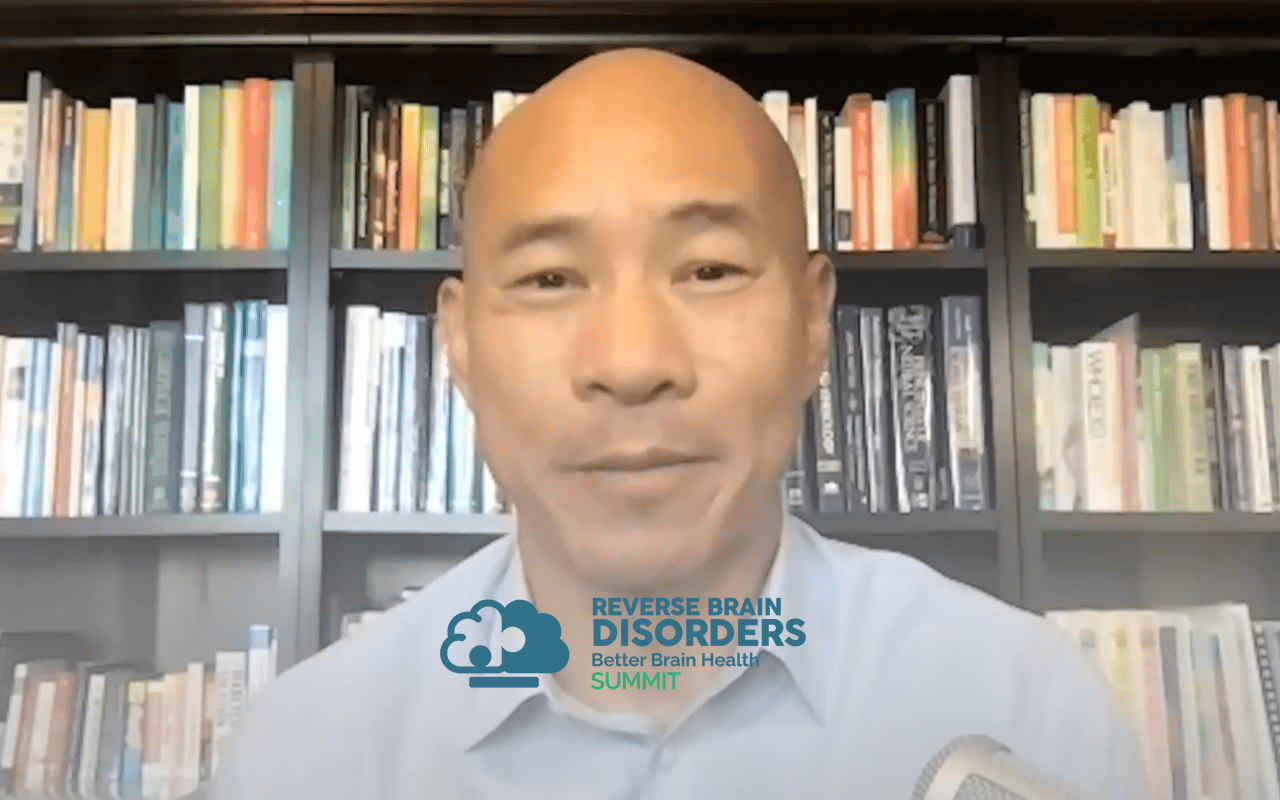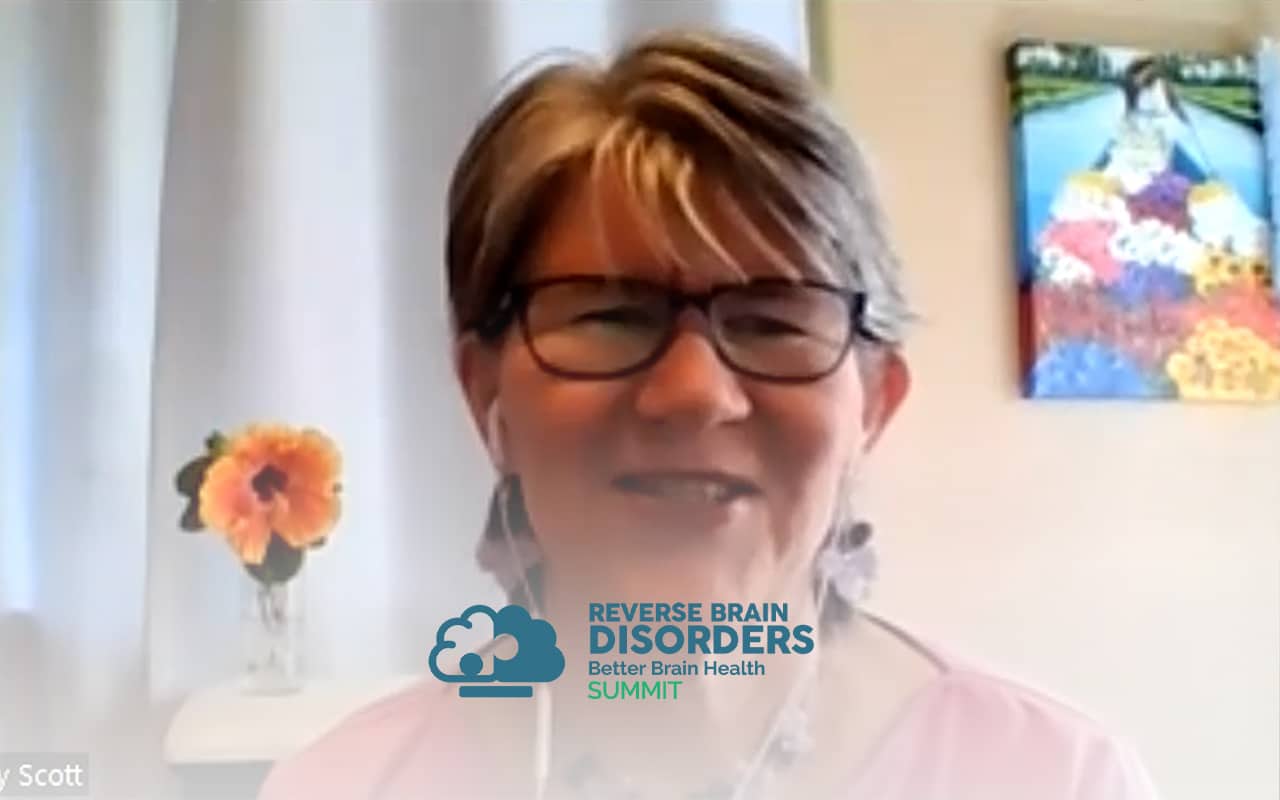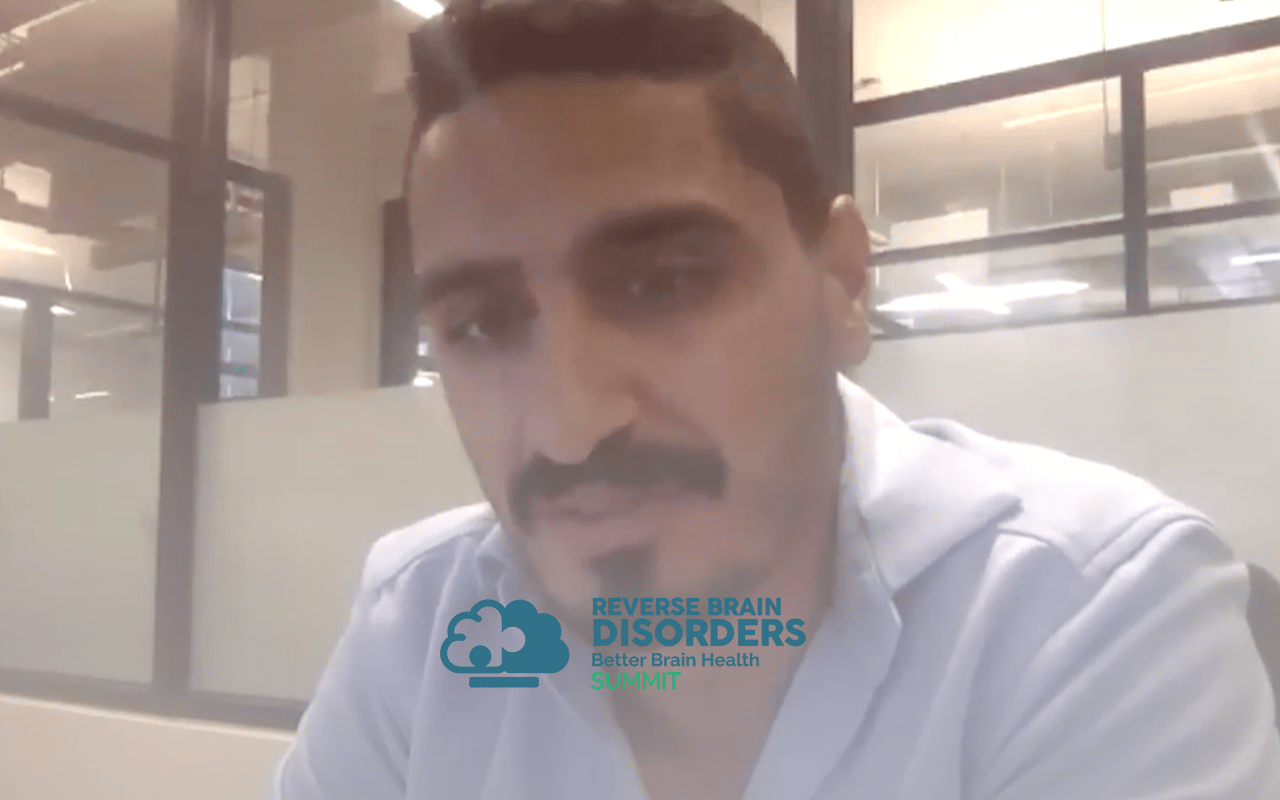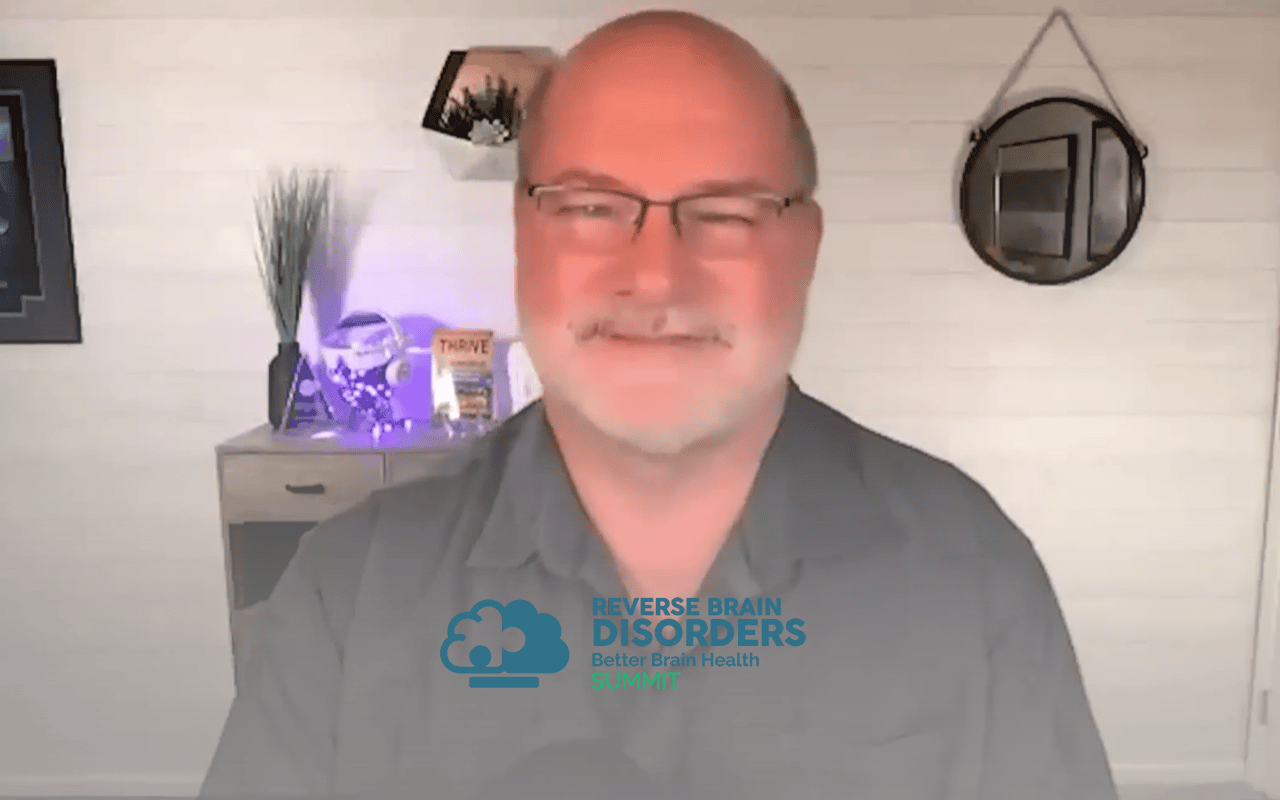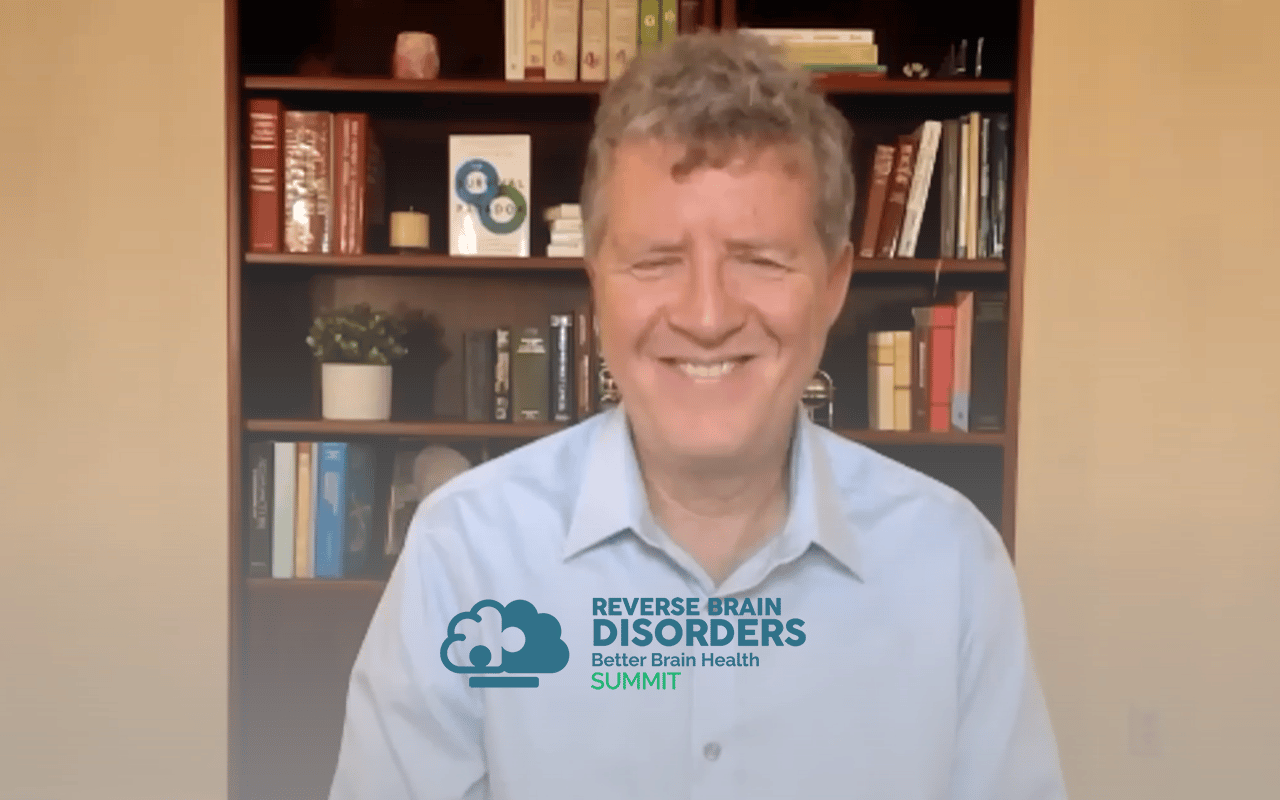Join the discussion below
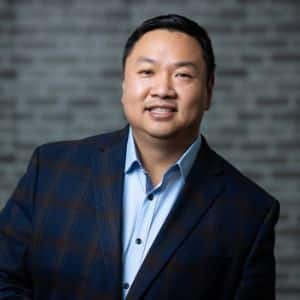
Dr. Ruan is the Founder and CEO of Texas Center for Lifestyle Medicine. He devotes his career in practicing and building systems that allow for efficient delivery of healthcare. He is a board certified internal medicine physician but also have advised with companies to improve their workflow, company culture, marketing,... Read More
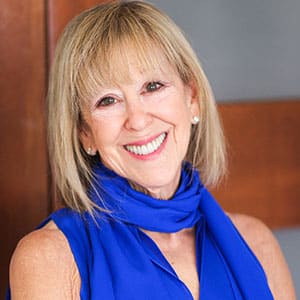
Dr. Sandra Scheinbaum trains people to become Functional Medicine health coaches and helps practitioners find coaches for their practices because she believes that growing the health coaching profession will be the solution to combating chronic disease and lowering healthcare costs. As founder and CEO of the Functional Medicine Coaching Academy,... Read More
- How health coaches use mind-body medicine approaches to help brain and mental health patients
- Why health coaches are the perfect guide to help with information overload when it comes to brain health
- Why health coaching is an exploding new healthcare profession
Cheng Ruan, MD
It takes a team to heal and what I’ve realized and a lot of other practitioners realized is that there’s a missing component to practicing medicine, especially when it comes to Brain health. And these are health coaches and health coaches are paving the way into the future to create this underlying trust and safety that within the medical system that allows healing to truly occur. Well, a lot of times we may feel like we’re kind of focusing on the negative things about health and maybe the doctors do the same thing as well, what health coaches do is they focus on the positive aspects of life and encouragement in a very nonjudgmental way and every person who we deal with our clinic when it comes to brain health, every person we try to guide, has health coach has health coaching, that’s along with it as well to create that path.
So there’s no one better to talk about that than Dr. Sandra Scheinbaum and she’s a great friend of mine known each other for years and she is an educator, a licensed clinical psychologist for over 40 years, and she’s also the founder of the functional medicine coaching academy, She trains people to become health coaches and really elevates the health coaching profession and hopefully that will be the solution to combating chronic mental and physical health disorders in the future. So, as the founder of the functional Medicine coaching academy, she collaborates with the Institute for functional medicine and also is the author of how to become a health coach functional medicine, health coaching and stop being panic attack in 10 easy steps, super proud to introduce you to Dr Sandy, I’m so excited to have you on to talk about this beautiful thing called health coaching that’s really transformed my life and the way I’ve practiced medicine. So thanks for coming on.
Sandra Scheinbaum, PhD
It’s a pleasure. Excited to talk about health coaching.
Cheng Ruan, MD
Yeah, so, you know, most people don’t know that health coaches are a thing now and so for the people listening to this and if they’re going through brain disorders or they have family issues are family members going through mental and brain health disorders. One of the biggest key players in the game are actually health coaches to help guide the process along. And we’ve discovered that at, you know, in my facility at Texas Center for lifestyle medicine, but can you just kind of walk people through exactly what a health coach actually does and how they fit between like between the patient and then the doctor’s role within, within the facility.
Sandra Scheinbaum, PhD
Absolutely. So coaches are the bridge between doctors and patients. Let me talk first about what they’re not. So there’s often confusion, I hear all the time. Oh, health coaches that kind of like a nutritionist. No, because a nutritionist role is to for example, look at developing meal plans, see what nutritional inadequacies might be present, looking at blood work. Well, the health coach, they are not licensed providers, they are not the ones who are going to make a diagnosis, who are going to establish a treatment plan that’s for the medical doctor, that is for a nutritionist, a dietician psychologist for example. And what they do is act as the behavior change specialist.
They help people change when change is hard and when we’re talking about making lifestyle changes, deciding I’m going to change how I eat or I’m going to embark on an exercise plan. Well often those are hard to sustain and obstacles get in the way and a coach is your ally, your accountability partner. They are the ones who help you were going over and over again to what is mattering most in your life, what do you want your health for and as a result they are the ones helping people to carry out the plan that the doctor may have established. And so that is why we say they’re the secret sauce because you can go to all the experts in the world, you can know exactly what you want to do. You can have good intentions, but then at the end of the day, how are you actually going to carry out those intentions.
Cheng Ruan, MD
Yes. And not only that, I think it’s also the bridge between the caregivers and family members and the patient to tell you how many times that, you know, there’s people who we see in medical practices who either don’t want coaching or they have sort of this, this thought about coaching that they don’t necessarily need it, so they don’t have it, it’s so much harder to see the patient improve without coaching significantly harder. And so much so that we’re now like making like an actual part of the progress. I think coaching is actually part of this because it’s an absolute necessity and essential, especially when it comes to brain health and and mental health, because what most people don’t understand is that the the connections between the patients and their family members, the caregivers, all that affects the way the disease state progresses, and especially with like dementia and memory loss and and stuff like that as well. And so whenever we whenever I think about a health coach, I think about this beautiful support system that’s non judgmental. Okay, and they meet people where they’re act, they’re not not necessarily pushing people into anything, There’s no there’s no fear there and it’s all about sort of this empowerment and I love it because the health coaches really focus on the positive things about the journey rather than a lot of people kind of per separate on the negative things, especially like caregivers and and and stuff like that. So does that also explain what the scope of health?
Sandra Scheinbaum, PhD
Absolutely, and the reason for that is because health coaching really evolved from humanistic psychotherapy. So that was what I studied way back in the late seventies, early eighties and at the time there really wasn’t such a thing as coaching. And so the idea of a client centered humanistic approach that was psychotherapy said it is all about the client, it is client centered. And so the coach who is there not doing psychotherapy. So again, they’re not the providers, they are the ones those who are going to be completely unbiased and first and foremost their listeners. And so many people don’t feel heard right now and coaches have the time within an encounter. So people may often go to their doctor and they feel rushed or they feel like that person is like the authority figure and they may be afraid to tell them certain things, but the coaches more like their peer and they know that that there’s no judgment, there’s no bias that the coach has and it is where that individual wants to start and then it’s where they’re going to start. And often it’s very tiny baby steps to get reach a goal.
The other role that a coach plays, that is becoming increasingly important is they are the advocate for this patient for the caretakers so that they will be the communication bridge between the patient and their families and the medical practice. And it can also work in reverse. So let’s say there was a treatment plan created or certain recommendations were made. People don’t understand or perhaps they got a bill and they’re not what I was charged for. They don’t understand. Well, the coach because they are these specialists trained in listening, that that person who may have the complaint will feel heard. And they also know that that coach is listening to them and will report back to the medical practice about any issues that may arise. And this is a really important role that they are increasingly playing in medical practices.
Cheng Ruan, MD
Yes. And one thing that I do want to point out is that there’s a lot of bridges that need to be that needs to be built between doctors, especially when especially when it comes to brain health, because, you know, I think that in in the field of neurology and psychiatry, there’s a lot of tools to diagnose, but they’re actually very few few tools to treat or reverse a condition. Right? And so but part of it is because that the way that we’re actually viewing healthcare right now is that if there’s not necessarily a prescription for it, then we call it like disease management, right? And so now also, let’s talk about management of the disease. And so, if what we’re currently training to do medicine for disease management is to make sure that people are compliant with their medications and maybe lifestyle here and there. Right. And that’s kind of it. But there’s no safety that’s around that. It’s like you’re just kind of waiting for things to happen and in fact, this is why a lot of doctors actually burns out in these professions, right, where the coach comes in or where we see it, especially in our practice is that they tease out so many more things from people from the patient, from the family members that we, the providers didn’t even know about, and then we find all of a sudden easy things to tackle now, right?
Because so many things within a patient’s daily lives, we don’t necessarily have the time to ask or have to know how to ask, but then we’re teasing these things that were like, oh yeah, we should do this. And so I can’t tell you how many times, like coaches actually prevented people like going to the ER, or going to urgent care for something that’s very easily understood just from the patient’s point of view. So, it really saves time and energy and money and angst, especially with their caregivers, and, and I can see this most often, and people with neurologic disorders, specifically like Parkinson’s dementia, Alzheimer’s dementia, these two and it’s because it’s because these coaches are actually trained from the communication process to tease out certain things that we practitioners really need to to know and understand about.
And so I find that to be very beautiful relationships of knowing, just knowing just, hey, there’s some things that, that, you know, Dr. Ruan should really know, and also making sure that there is that bridge, making sure that we get people like in who are urgently need to be seen, right, and we can’t see them urgently. They make sure they work with our staff to make sure that we need to create some emergent or urgent care here, so that we’re able to, you know, prevent that, that failure point and so on. So this also comes on the mental health sector, right? So we’ve got a lot of people with, like, a lot of traumas and PTSD and stuff like that and we start noticing things in our our health coaches pick up, especially the health coaching notes that we have no idea about, I’m like, oh, this is kind of a big deal for their health, right? And I’m so super thankful that the health coaches really elevate the ability for other providers and practitioners and doctors like myself, they really elevate the things that we can actually do to take, take our powers, you know, significantly further as well.
Sandra Scheinbaum, PhD
Absolutely, Well, that was beautifully said, and coaches increasingly are supporting emotional wellness, mental health and brain health. So, as coaching, his health coaching was originally established, it was common to associate coaching with more, like helping people carry out a food plan, a diet plan, they were working on people, people who wanted to lose weight for example and now, especially after the pandemic, we’re seeing such a rise in anxiety and depression, People having difficulty dealing with the stressors in their life and that of course is impacting brain health and so what coaches are doing increasingly is they they’re becoming emotional health coaches where they’re not, again, they’re not diagnosing or treating any psychiatric condition, they’re not doing psychotherapy and our school were very clear on what those boundaries are and when to refer out for a licensed mental health specialist.
They do help people to see that they’re not alone to see that these feelings they’re experiencing are normal. They often are doing this in groups, which is again, like I’m not alone, others are feeling like I am and that itself becomes the medicines very healing and they are also helping them with problem solving and developing a way that they can apply perspective and think about their own thinking and make those adjustments so that they are experiencing less anxiety, less mood shifts. And so that is an area that I think we’re going to see great growth in health coaching and particularly for those who are experiencing cognitive impairment. There is actually a wonderful book, it’s a positive psychology book called Living Well with dementia and it shows it actually defies a lot of the stereotypes that you cannot live well with. And so it goes into the character strengths that people have things like creativity, love and ways that they could still have a life worth living despite this diagnosis.
Cheng Ruan, MD
So, you know, I think a lot of what you just touched on is really important because it’s all about perspective, right? So there’s diseases and there’s quality of life and they don’t necessarily, you know, have to be opposite things. People living with chronic disorders can have amazing quality of life really depending on the perspective. And I think the health coaches are really the missing piece to get people to like value that through, you know, this positive psychology, right? And so this understanding that, you know, we have to be, you know, categorized under, you know, one disease state or one bucket and these are the things and eventually because how we die, it’s not that the disease is really shouldn’t define humans, you know, humans were all individuals and we all have this amazing ability to to adapt. And so some of the most inspiring people I’ve ever met or people with pretty bad chronic neurological disorders, but their outlook is just absolutely, you know, fantastic. You know, they’ll say phrases like, you know, I have Parkinson’s, Parkinson’s doesn’t define who I am. It’s just part of one of my diagnoses and that’s okay, but I still value, you know, my wife, my husband, etcetera, etcetera. And so that and and and it’s rare that we can deliver that from a doctor’s office standpoint because I’m not trained to talk like that. No way. And in fact I might be trying to do the opposite, just kind of thinking back on medical training in general. And so I think that part of the, part of the coaching processes that kind of honors sort of the mind body medicine component to the, to the healing process. And there’s other people that I’ve interviewed That our neurologists and psychologists and psychiatrists who all agree that the belief and the perception of our health really dictates our physical health, you know, mindfulness and meditation and prayer and stuff like that changes the way our genes are actually expressed even after just 10 minutes. We were able to see that, see that in science. And so I think coaching is absolutely needed. Now the people are listening to this, and maybe listening for the first time that oh my gosh, there’s such a thing as a health coach. How do you think people can find a health coach? Like what do you what do even look?
Sandra Scheinbaum, PhD
Sure. So we have the, on our website we have a directory, find a coach. You want to look for a coach who is nationally board certified. So that is the gold standard. It means that that coach do not just take some weekend course. Instead, I’m calling myself a health coach means they met some rigorous, they went to an approved school, they passed an exam. They’re meeting the minimum standards for competency and going above and beyond to seek this certification. This board certification. So they can look at the National Board for Health and wellness coaching and we’re at FMC, an approved school. So our coaches do go on and seek that board certification and then you would often people go to their doctor and say, hey, you know, I want to work with a health coach and that’s the way to grow awareness in the medical community that health coaches can be the ones who help people make these very difficult changes. And so we’re seeing a big increase. And medical practices like your practices are really seeing the great value of coach and coaching practices. And so as a school, we are committed to training coaches and also to educating them and educating the public about the power of coaching.
Cheng Ruan, MD
Yeah, absolutely. And I can’t, I can’t I can’t emphasize that more of that coaches are actually needed. And just from a statistical point of view, we know that, you know, pre pandemic, about 49% of doctors were truly burnt out and that post temple that’s above 60% now. And part of it is there’s no way to really deal with the isolation and loneliness. And this new sort of cancel culture phenomenon that’s really going on on social media. And having that translate into like higher levels of distrust and, you know, most, most doctors are actually burnt out because there’s a sense of distrust from the patient and them. And it doesn’t necessarily come from something bad, the doctor is saying that comes from uncertainty because there’s a lot of information that’s out there on the internet and they’re contradicting each other and you know, during the pandemic, even the doctors are kind of like contradicting each other. So we’re we live in an age for the first time and I think I’ve ever seen that it’s not okay to agree to disagree. You know, it’s like and it doesn’t necessarily, you know, it doesn’t necessarily have to be that way, but I think where coaching comes, comes in is coaches can actually rise about that, you know, and so, you know, despite what people say, we still, you know, value the things that we value, you know, and so let’s let’s kind of get this this last point which is a mind body medicine. Can you just kind of tell us the power of mind body medicine and how do coaches really employ those strategies?
Sandra Scheinbaum, PhD
Oh yeah, this is a subject near and dear to my heart because that’s how I got started in this field many, many years ago and talking late seventies and I would join these organizations on self regulation therapies and it was considered so radical, you know, the idea that you can stop and create some awareness of how you were breathing and that could create a physiological change they would have doctors throw out of their office like get out of here, like there’s no evidence, What are you talking about. And so we have seen an evolution in this field, We now have the imaging techniques that are refined enough to see the profound changes and there was something I started saying back in the seventies, like what’s real in the mind is real in the body and we now have the data to prove that. So it is how you approach your circumstances and how you define yourself, how you have hope. So we can consider that part of mind body medicine because if you are, if your thoughts are hopeful and you are experiencing optimism then that’s going to have a big effect at the around your immune system.
If there’s a field called psycho neuro immunology where it looks at the interaction. So what are some of the strategy? Because I think what would be important for people to know and that there is a variety and it is not one size fits all. So it is not you have someone to say oh go meditate. Well that might not be right for somebody for example, I did a lot of work as a psychologist. People with panic attacks and I see that they were told to meditate and they would have a severe panic attack in the process because Because they were not ready for that stillness for them, something that would be more of a guided technique or doing an activity that they loved like taking a walk when talking to a friend, that would be a form of meditating. So it was not just closing your eyes and sitting for 20 minutes in stillness, their thoughts will overwhelm them and they’ll start here feeling Their heart beating and that will send them into a panic. Somebody else might really enjoy that. So you they find an activity, it could be breathing, it could be using muscle relaxation, that’s an all tried and true where you tense a muscle that comes from progressive muscle relaxation, Edmund Jacobson in the 20s and then you let it all go. You can focus on imagining hand warming and you did a lot of that work with biofeedback and you send the warmth down to your fingertips or it is a guided imagery where you are imagining, you’re going deep into an imaginative process. There are many ways that you can have what we call mind body medicine experience where you are really feeling this power and a lot of it is about your imagination and an awareness in the moment of your physical states, something as simple as just like, oh I’m slouching over, I’m going to stand up straight or I’m going to feel more strength. Well that’s going to create better breathing space and a coach could guide you through this. So coaches are we train coaches in this mind body medicine, all these modalities and coaches can also educate people. So something I wanted to get back to, you were talking about earlier, like all of the information that’s out there on the internet for example, people are confused and so coaches can help them sift through and decide what’s right or even it’s something like oh I was listening to the radio and an ad came on for a brain boosting health supplement and what you know, so and they don’t know about and coaches can help them to see like you know the advertising behind it and quality and so that is another way that coaches can be that communicator and also feedback this information to the medical practice.
Cheng Ruan, MD
Yeah, deciphering information that gets marketed to you, I think that’s so important, you know, and so you know that that kind of brings me to a couple of stories so recently, you know one of my my coaches went on vacation and then there’s this sort of freak out amongst all of us, the doctors, the nurse practitioners, everyone was like oh my God, she’s gone like like what do we do? And then there’s there’s almost like this universal level of tension that just elevates even within my staff, my front desk, my back office, my my my medical assistance and then when they came back, okay, thank God and it’s because we didn’t we didn’t I guess we didn’t realize like how much coaching actually created this this calm and and safe nous, you know with with people and patients even within us as well.
And part of that is because, you know, we actually do the mind body medicine piece that our coaches teach the patients and stuff like that, and sometimes we need to be held accountable as well, so it does go in all directions. I think coaches are great for the patients, I think coaches are great for the doctors and practitioners, the coaches are great for administrators and the coaches are great for the entire staff, doesn’t matter who it is, so, and it’s that’s a very recent thought process just just came on and I’m like, you know, I’m still thankful that we have our coaches to, to, to accomplish this, you know, and and just kind of ending on this topic of my own body medicine, you know, people think that maybe, you know, I just changed the way I feel and belief systems and stuff like that and everything will be okay, well that’s a process, you know, and a lot of our behaviors are invisible to us, even me, especially me actually, and so, sometimes we don’t have, we have people around us that we may take care of, right, but we don’t necessarily have the third independent party to balance back off of and that’s crucially important, you know, me personally, you know. I also have a business coach and I have a life coach as well, right? And so the power of what the coaches can do dramatically improves my quality of life and the life, the life around me. And so I wish every person that’s going through like, you know, brain health and just chronic diseases in general has at least the coach to help that guiding process. It is, it is a big difference, you know, and I’ll tell you no one’s ever regretted a coaching visit ever in our facility, right, And that’s always going to be true, but it’s really, you know, time to kind of get taken a step in. So now some people are listening to this maybe like inclined to be a health coach and so how does that process work with Functional Medicine Coach academy?
Sandra Scheinbaum, PhD
Well, first of all, you don’t need a background in health care. In fact, sometimes that could even get in your way. We have medical doctors who are in our program and they are saying gee you know, they have their with people in their cohort group because it’s experiential and and people learn in small groups and they say, boy, you know, I just have a hard time not being the expert, not just like telling people what to do and using that coach approach and those who come from many backgrounds, we have just so many people who have been in corporate, they’re feeling like they want to be in a profession that feeds their soul that is fulfilling their mission and purpose in life to serve others. Often they have gone through their own struggles themselves or they’ve seen a loved one who has been experiencing dealing with chronic disease and now they want to give back and so you don’t need a background in healthcare, you don’t need a background in nutrition. What you need is to be a good listener and come to sessions with mindfulness, hope, compassion. It is a profession that is transformative as as you study to be a coach, you are personally transformed.
And so what you learn our principles at our school, we teach functional medicine principles, which is root cause how to see that often if we dig deep enough to the root cause of chronic conditions, it’s something like inflammation, what striving that lifestyle factors. And so coaches will help people with what they’re eating and they’re movement throughout the day, the relationships, their sleep and how they’re dealing with the stress in their life. And some of the best coaches have no background whatsoever in health care, but we do have a fair amount of people also who are wanting to blend the coach approach with what they’re already doing, Perhaps they are a doctor, they are a nurse there, a dietician and they still want to do that work and now they’re doing it with the coach approach or we also have doctors who are studying with us because they don’t want to miss out. They’ve hired health coaches and they say I want to learn this, I want to be a coach. We also have some practitioners who are saying, you know, the time is right for me to be a coach and I’m in this phase of my life where I’m not going to continue with my medical practice or my psychology practice and I am going to become a coach so many different ways that you can use your coaching. And again, it is a personal transformation as well as professionally.
Cheng Ruan, MD
It’s amazing. It’s a it’s a great way to kind of get to the next level of communication and I think that’s something that I think the world truly needs. So what is the U. R. L. Of your website?
Sandra Scheinbaum, PhD
It is functionalmedicinecoaching.org.
Cheng Ruan, MD
Perfect. Very easy. functionalmedicinecoaching.org. Well, Sandy, thanks for being on what’s been a great conversation and the fact that the fact of the matter is that without health coaches, I don’t think I would be actually doing what I’m doing today. So I wanna thank you for for spearheading that as well.
Sandra Scheinbaum, PhD
Well, thank you. It’s been a pleasure to be here.
Downloads

